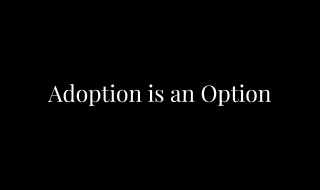What was the difference between King Saul and King David? Saul was a people-pleaser, David was a God-pleaser. The motive behind their actions set the stage for the leadership.
The root of Saul’s problem as king was anger — the emotional state that may range in intensity from mild irritation to intense fury and rage. Even when David had just killed Saul’s greatest obstacle to the throne, Goliath, Saul was angry. He should have been thrilled with the defeat David accomplished, but instead he was furious. The true test of a leader is if he can allow those around him to flourish in their gifts.
In 1 Samuel 18, we watch as David returned victorious from fighting Saul’s battle, but instead of being thrilled with a win, Saul was jealous: “Saul was very angry; this refrain displeased him greatly. ‘They have credited David with tens of thousands,’ he thought, ‘but me with only thousands. What more can he get but the kingdom?’” (1 Samuel 18:8, NKJV).
Saul was worried about what people would say or think about him. Kings don’t act like this. Kings put anger and jealousy aside. You can’t walk in the Kingdom of God if you do not put aside these negative character habits. Hebrews 12:1 says we need to “lay aside every weight, and the sin which so easily ensnares us” (NKJV). God doesn’t say He will set anger aside, He says we need to do it! Anger is a character issue; not something we are born into, but something we develop over time.
If I sit down my 3-year-old daughter and then yours across from her, and in the middle of the two girls I place one marshmallow, what’s going to happen? A fight will break out. We have to teach our children about being selfless and giving to others, it’s not a natural tendency. Selflessness is developed over time with practice and guidance.
While Saul was worried about what others might think about him, David, even as a young man, was being molded by God into the leader he was called to be. God saw something in Saul that led Him to make him king. But because Saul never dealt with his character issues, God raised up another king in his place — David. Whatever issue the Holy Spirit places His thumb on in your life, that’s what you need to deal with.
Our true character and potential are brought to light when we walk in our gifts and purpose. When we read this story of David and Saul, we see that Saul was afraid of David and even threw spears at him for using his gifts for God’s glory. When Saul told David that he would give his daughter to David for a wife, David humbly replied, “Who am I, and what is my family or my clan in Israel, that I should become the king’s son-in-law?” (1 Samuel 18:18). David had just conquered Goliath and yet, in the presence of the king, he still did not see himself as worthy of this honor. David didn’t take his service to the king lightly, but postured himself with humility.
So when Saul told him to bring back 100 Philistine foreskins as a price for his daughter, David gladly did so, bringing back double the amount. David was a killer, that was his gift! So when the opportunity arose for him to prove his worth by using his gift, he said, “Let’s go!”
God honored his humble spirit and his eagerness to serve to the best of his ability. That set David apart as a true king. True character is shown when, in humility and eagerness, we park at our gifts.
— LaMorris Crawford, Cincinnati Bengals chaplain
The Increase, part of the Sports Spectrum Network, is a community of Christian pro athletes sharing their personal stories of the decrease of self and the increase of Christ (John 3:30). Visit TheIncrease.com for more stories and videos.



